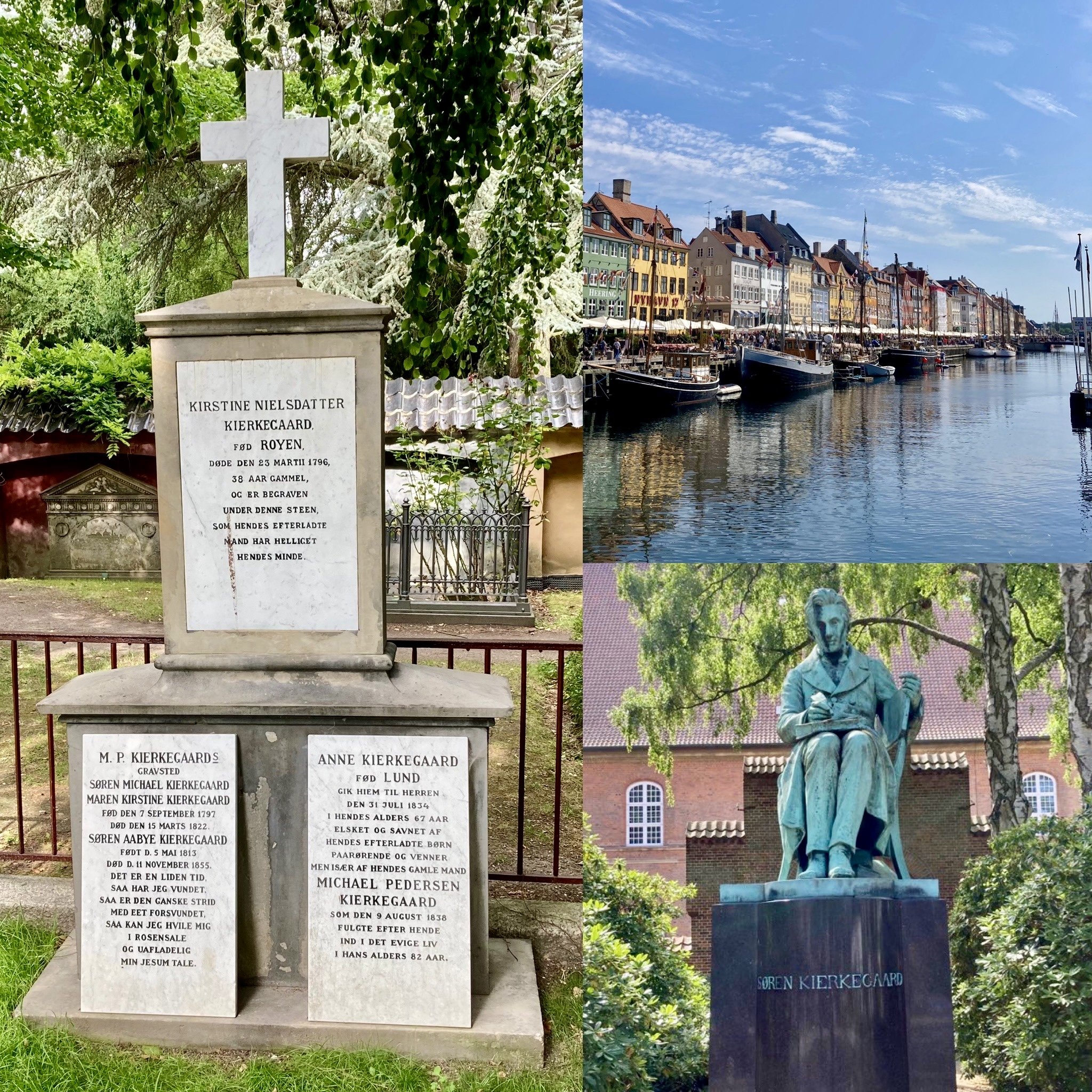Kierkegaard’s Kjøbenhavn (Copenhagen)
Whoever has learned to be anxious in the right way has learned the ultimate. If a human being were a beast or an angel, then they could not be in anxiety. But because a human being is spirit, they can be in anxiety; and the more profoundly the individual is in anxiety, the greater is the individual yet not in the sense usually understood, in which anxiety is about something external, about something outside a person, but in the sense that the individual themselves produces the anxiety.
-Søren Kierkegaard’s pseudonymous author of ‘Begrebet Angest’/‘The Concept of Anxiety’ from 17 June 1844, Vigilius Haufniensis (literally: The Vigilant Copenhagener)
Last week I had the good fortune of visiting Copenhagen for a conference. As my first trip to Denmark’s capital, I spared no opportunity to explore within the ramparts of the city of Kierkegaard’s birth and where, apart from a few excursions to Berlin and sundry jaunts to the countryside, the Danish religious poet, theologian, philosopher, psychologist, etcetera lived the entirety of his 42 years (1813-1855) and, in the span of roughly 12 years, produced more than 30 books along with thousands of pages of journal entries, drafts, correspondences, and other writings. One perception of the person, Søren Aabye Kierkegaard, and his prodigious authorial output that I have held for some time now, but which was driven home all the more as I visited the various apartments in which Kierkegaard lived and wrote, went to school, attended church and received communion (Vor Frue Kirke/The Church of Our Lady and Kastelskirken/The Castle Church were especially excellent in their elegant simplicity), and found his final resting place (Assistens Kirkegård/Assistens Cemetery), is the way in which God worked in and through Kierkegaard, despite Søren’s short, and in many respects unenviable, temporal life. I ordinarily shy from designating things as providential for many reasonschief among them, the implicit presumptuousness of being able to discern the divine mind and the not insubstantial prospect of my being wrong. That said, if there is anything that I am at all confident in venturing as bearing the mark of the divine hand, it is that “The Gloomy Dane,” though but a religious poet without authority, was brought into being out of nothingness and endured all that he did Kierkegaard grieved the loss of his brother, Søren Michael, in 1819; his sister, Maren Kirstine, in 1822; his sister, Nicoline Christine, in 1832; his brother, Niels Andreas, in 1833; both his mother, Anne Sørensdatter Lund, and sister, Petrea Severine, in 1834; and his father, Michael Pedersen, in 1838 in order that he could write all that he did. That is, write so much and on the often grave topics which he did. Kierkegaard, the author of such titles as Frygt og Bæven/Fear and Trembling, Begrebet Angest/The Concept of Anxiety, and Sygdommen til Døden/The Sickness unto Death, knew death and finitude.
To give some idea of my providential interpretation, in eighteenth century Denmark wherein surnames were so new and fluid, Søren’s father was born to a poor family living in a rural parsonage of the Jutland. The surname ‘Kierkegaard’ deconstructs and translates into the Danish ‘kirke’ (i.e., “church”) and ‘gaard’/‘gård’ (i.e., “yard”). In other words, like the cognate English ‘kirkyard,’ the name ‘Kierkegaard’ literally means “churchyard,” or, less formally, graveyard, cemetery, burial ground, gravesite, place where one’s mortal remains are interred or consigned to the earth. Similar to the custom of blacksmiths and metalsmiths (“Smyth”) as well as tailors (“Taylor”) in England, Søren’s father altered ‘kirke’ by adding the initial ‘e’ (‘kierke’) when he moved to Copenhagen in order to differentiate the cognomen from the common noun. One might say as I do, then, that, before Søren Kierkegaard was brought into this world, he was providentially destined to fixate upon and develop such brilliant insights into topics which are otherwise so commonly put off until one has good cause to visit the churchyard. In any case, I certainly think that the world, or at least my world, is better with God having placed Kierkegaard in it as He did. And, while I of course cannot offer proof in asserting the providential hand at work in Kierkegaard, just I cannot offer proof of God at work in my life or that of anyone else, I do know that I am not alone in holding that sentiment and faith.
Dallas is a student reading for his DPhil in modern theology and Christian ethics (focusing on the work of Søren Kierkegaard) at Magdalen College.
